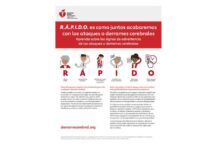Summary:
Recent research delves into the effects of early sugar exposure on long-term health outcomes, particularly focusing on individuals born before and after sugar rationing in the United Kingdom post-World War II. The study, led by Dr. Tadeja Gracner from the University of Southern California, examines how reduced sugar exposure during critical developmental stages may impact the risk of developing diabetes and high blood pressure later in life.
In a groundbreaking study led by Dr. Tadeja Gracner of the University of Southern California, researchers explored the intricate relationship between early sugar exposure and long-term health outcomes. The findings shed light on the impact of sugar consumption during crucial developmental stages, offering valuable insights into the prevention of chronic diseases like diabetes and high blood pressure.
Uncovering the Impact of Sugar Rationing
The study delved into the health effects of sugar exposure in the womb and early childhood by analyzing data from over 60,000 individuals born in the United Kingdom between October 1951 and March 1956. During this period, some individuals were born before July 1954 and thus experienced reduced sugar exposure due to rationing policies in place post-World War II. In contrast, those born after July 1954 entered a sugar-rich environment following the end of rationing, leading to contrasting levels of sugar intake from an early age.
Dr. Gracner and her team observed that individuals with limited sugar exposure early in life exhibited a lower likelihood of developing diabetes and high blood pressure in their later years. The health benefits of reduced sugar intake were particularly pronounced among those who experienced longer periods of rationing post-birth. For individuals with at least 19 months of reduced sugar exposure, the risk of diabetes decreased by approximately 35%, while the risk of high blood pressure dropped by around 20%.
Insights from the Study
Dr. Gracner emphasized the significance of this unique research endeavor, highlighting the rare opportunity to observe individuals exposed to varying nutritional environments early in life over several decades. The conclusion drawn from this study underscores the critical role of early dietary habits in shaping long-term health outcomes, emphasizing the importance of limiting added sugars during infancy and childhood.
“The end of rationing provided us with a novel natural experiment to overcome some of these challenges,” noted Dr. Gracner. By leveraging the historical context of sugar rationing in the United Kingdom, the study offers compelling evidence of the lasting impact of early sugar exposure on health outcomes, urging parents and healthcare professionals to prioritize healthy dietary practices from infancy to reduce the risk of chronic diseases.
As the research continues to unravel the intricate relationship between early sugar exposure and long-term health, the findings underscore the importance of promoting healthy eating habits from an early age. By understanding the profound impact of dietary choices during critical developmental stages, individuals can take proactive steps to safeguard their health and well-being for years to come.

















